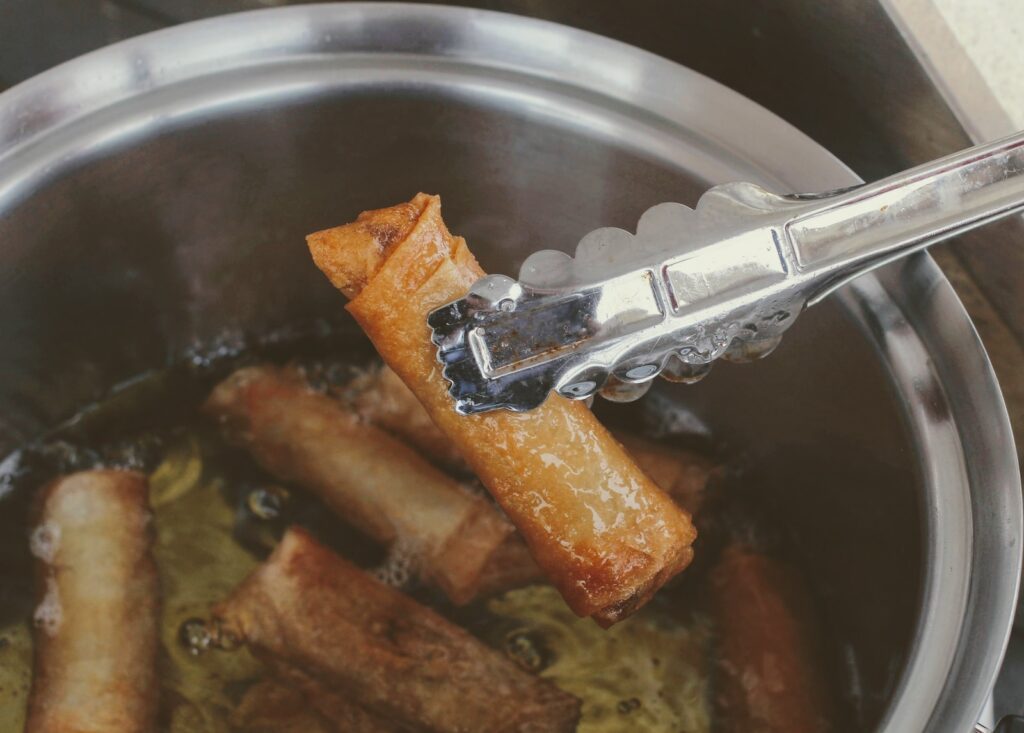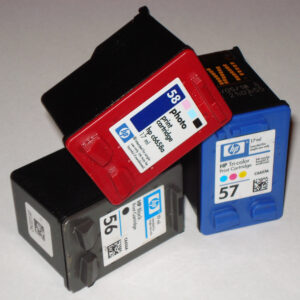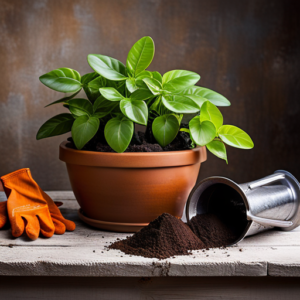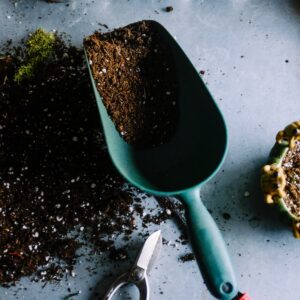Conditional: It is generally not recommended to reuse frying oil multiple times because the oil breaks down over time as it is exposed to heat and food particles, which can lead to changes in its flavour, aroma, and nutritional value. Reusing oil can also increase the likelihood of developing harmful compounds that can affect your health.
If you must reuse frying oil, it is important to filter it thoroughly to remove any food particles and debris. Additionally, it’s recommended to only reuse oil once or twice at the most, and store it properly in a sealed container in a cool, dry place between uses.
However, it’s generally better to use fresh oil for each frying session to ensure the best quality and taste of your food, as well as to minimize potential health risks.
In this article, we will explore the do’s and don’ts of reusing frying oil, as well as the steps you can take to ensure that your oil is safe to use.
Table of Contents

Do’s & Don’ts
Do’s:
- Strain the oil – After deep frying, strain the oil through a fine-mesh strainer or cheesecloth to remove any bits of batter, pieces of debris or impurities.
- Store the oil properly – Store the leftover oil in its original container or an airtight container in a cool, dark place, away from heat and light.
- Reuse the oil within its lifespan – The lifespan of frying oil varies depending on how it’s used and stored. A good way to know if it’s still good to go is to monitor its colour and smell. If it has a musty or fishy aroma, it’s time to toss it.
- Monitor the oil’s temperature – When reusing oil, make sure to monitor its temperature closely. Overheating the oil can cause it to break down and become unsafe to use.
Don’ts:
- Don’t reuse oil that has a strong odour or flavour – If the oil smells or tastes off, it’s best to discard it and start with new oil.
- Don’t mix different types of oil – Mixing different types of oil can cause them to break down more quickly and become rancid.
- Don’t reuse oil that has been used to fry seafood – Seafood can leave a strong odour and flavour in the oil, making it unsuitable for reuse.
Steps:
- Let the oil cool completely – After frying, let the oil cool completely before straining and storing it.
- Strain the oil – Strain the oil through a fine-mesh strainer or cheesecloth to remove any impurities or debris.
- Store the oil – Store the used oil in its original container or an airtight container in a cool, dark place, away from heat and light.
- Reuse the oil – When reusing oil, use a funnel to pour the oil back into the deep fryer or pan. Monitor its temperature closely and use it within its lifespan.
FAQs:
How many times can I reuse frying oil?
It depends on the type of oil and how it’s been used. In general, you can reuse oil 2-3 times before it becomes too degraded to use.
Can I mix different types of oil?
In general, it is not recommended to mix different types of oil for cooking. Each type of oil has a specific smoke point, flavour, and nutritional profile, and mixing oils can lead to unwanted flavour and texture changes in your food.
Additionally, some oil combinations can be potentially harmful. For example, mixing oils with vastly different smoke points can lead to dangerous levels of smoke and even fires. Mixing oils with different fatty acid profiles can also cause unstable chemical reactions, potentially leading to the formation of harmful compounds.
Here are some examples of oil mixes to avoid:
– Mixing olive oil and canola oil: Olive oil has a low smoke point, while canola oil has a higher smoke point. Mixing the two can lead to an unstable combination that can produce harmful fumes and even cause a fire.
– Mixing coconut oil and vegetable oil: Coconut oil is high in saturated fats, while vegetable oil is often a blend of different types of oils. Mixing these two can lead to an unstable combination that can produce harmful compounds when heated.
– Mixing sesame oil and flaxseed oil: Sesame oil has a high smoke point, while flaxseed oil has a low smoke point. Mixing the two can lead to an unstable combination that can produce harmful fumes and even cause a fire.
It’s generally best to use a single type of oil for cooking to ensure the best quality and safety of your food. If you must use different oils, it’s recommended to use them separately and avoid mixing them.
How many times can I reuse frying oil?
There’s no hard and fast rule on how many times you can reuse frying oil. It depends on factors such as how it’s been used and stored. Monitor its colour and smell to determine when it’s time to toss the oil.
How do I know when it’s time to toss the oil?
When the oil starts to darken or become cloudy, or if it has a musty or fishy aroma, it’s time to discard the oil.
Can I reuse oil that has been used to fry chicken wings or french fries?
Yes, you can reuse oil that has been used to fry chicken wings or french fries, as long as it hasn’t been overused and still smells and looks good. However, the oil may have a stronger flavour and odour, so it’s important to monitor it closely and use it within its lifespan.
Can I reuse oil that has been used to fry potatoes?
Yes, you can reuse oil that has been used to fry a batch of french fries/potatoes. However, the oil may have a stronger flavour and odour, so it’s important to monitor it closely and use it within a reasonable time frame.
The hydrophobic nature of frying oil allows it to repel water and helps to extend its lifespan, making it possible to reuse frying oil multiple times. Reusing frying oil can be a great way to save money and reduce waste, but it’s important to do it safely. By following the do’s and don’ts of reusing frying oil, as well as the steps outlined above, you can ensure that your oil is safe to use and that your food tastes delicious. Remember to always monitor the oil’s temperature, store it properly, and reuse it within a reasonable time frame.









